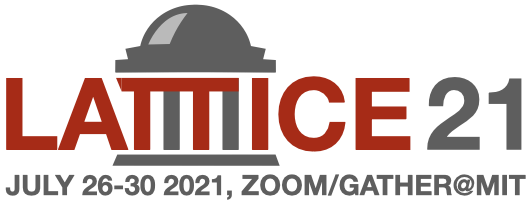Speaker
Description
Lattice Quantum Chromodynamics (LQCD) provides the most direct probe into sources of CP-violation. These sources assume an effective form in higher-dimensional local operators built from QCD fields. Unfortunately, the operators mix with lower-dimensional operators under renormalization, introducing power divergences in the lattice spacing which inhibit a smooth continuum limit. The gradient flow provides a method to circumvent this problem. By smearing the fields dynamically in a new dimension, the flow time, we reparametrize the operator mixing independently of the lattice spacing, allowing for a continuum limit at any fixed, nonvanishing flow time. Moreover, the fields are subjected to a Gaussian dampening of high-energy modes, so that ultraviolet divergences are suppressed in the bulk. On the other hand, the nonlinearity of the flow equations and nature of their solutions complicate flowed perturbation theory necessary for the high-energy matching of lattice results. In particular, the damping effect seemingly precludes the use of standard parametrization techniques to calculate loop integrals. We offer a new combinatorial technique for calculating Feynman integrals which is sufficiently general to include diagrams with flowed fields. Further, we present a related renormalization scheme with results and applications of this method to the determination of CP-violating nucleonic matrix elements on the lattice.
